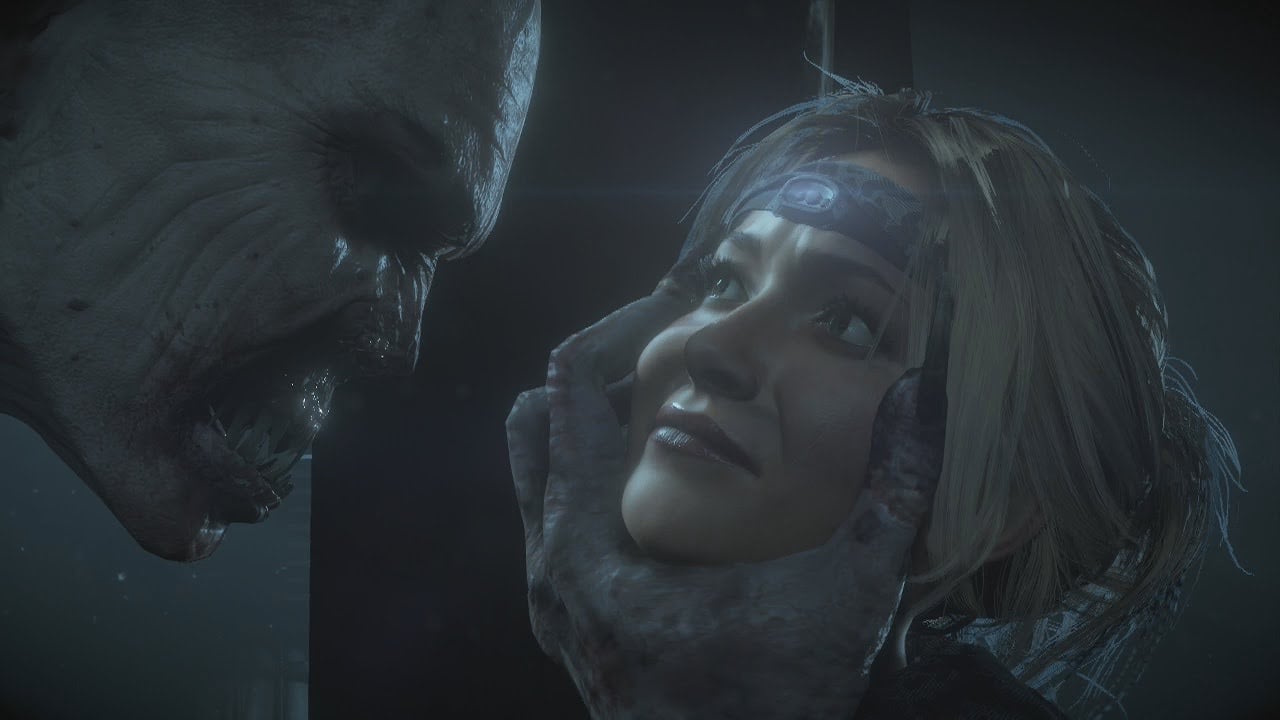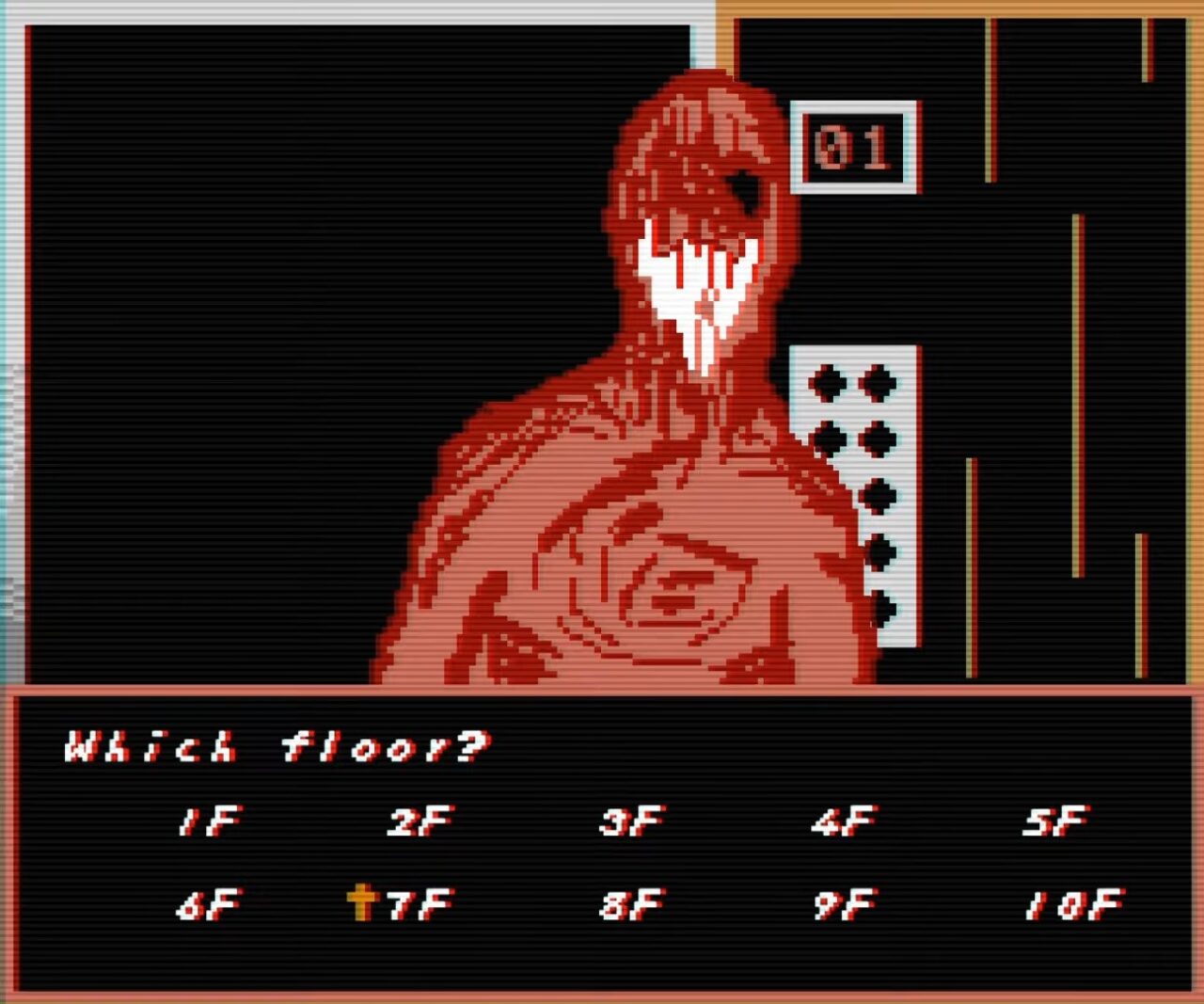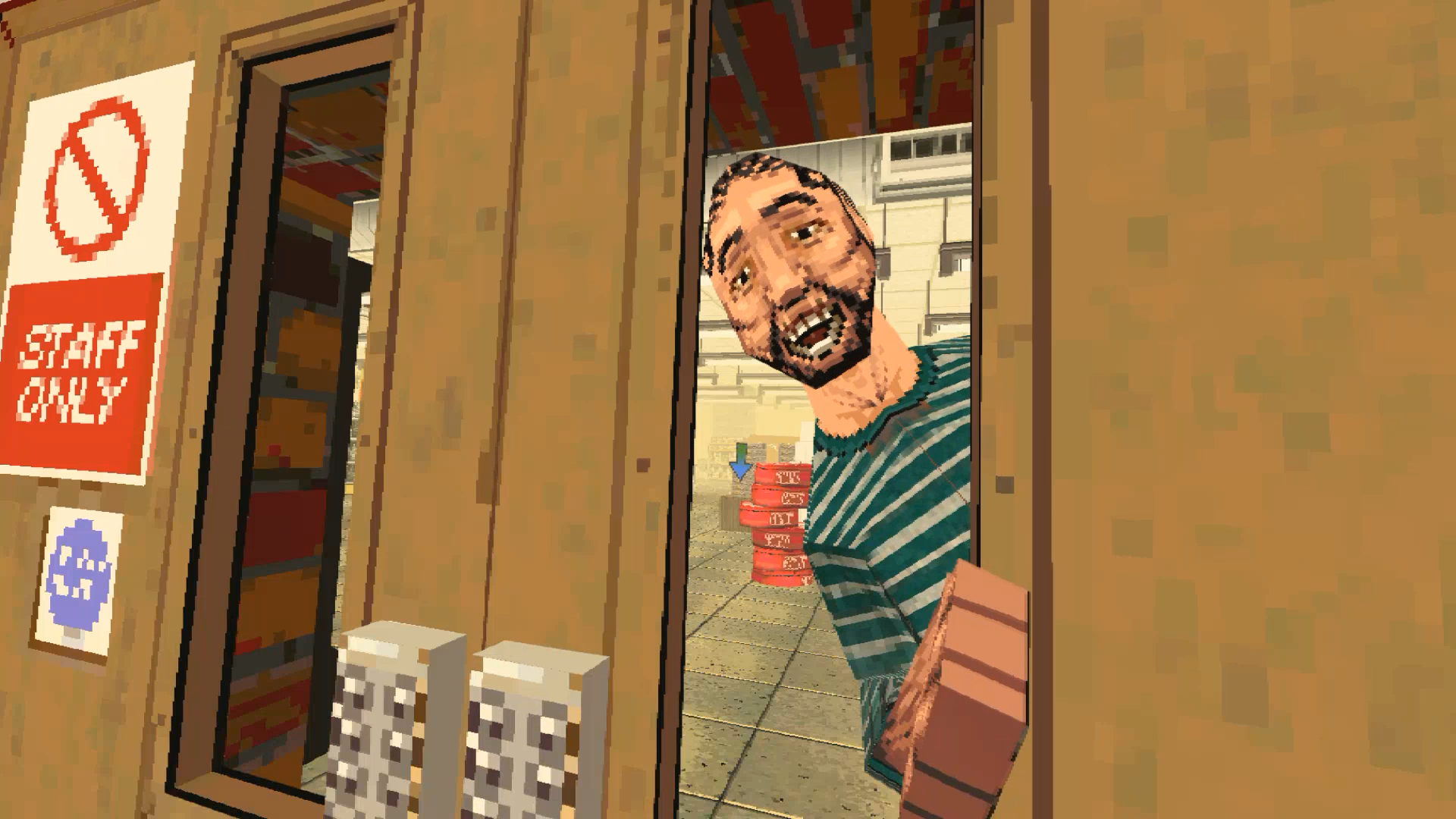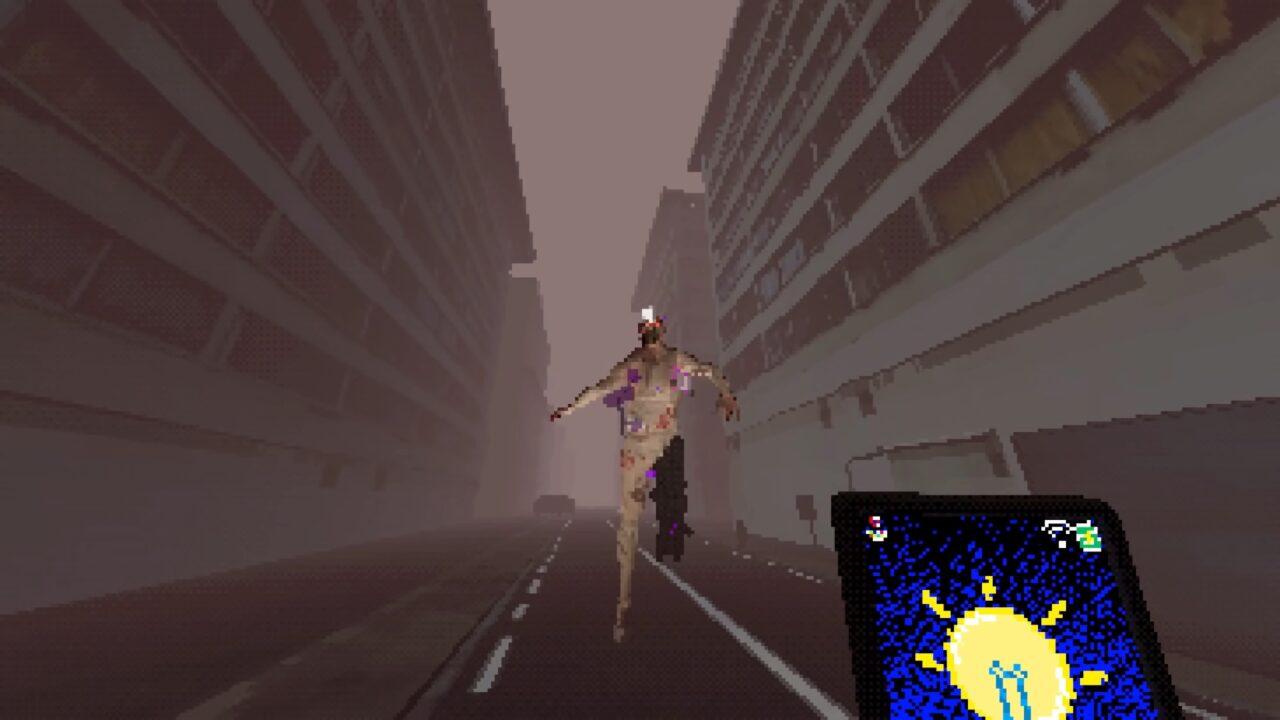Why do Colored Squares Make the Most Horrifying Games?

With the release of FAITH: The Unholy Trinity I am reminded of the soul-splitting terror that retro-styled games are capable of. None of the horror games and movies I have seen left me an anxious mess like pixel art horror. Pixel art and retro-styled games are well alive with indie titles taking advantage of modern software made accessible for game development. While full retail-level games take a team and funding to pull through, retro games take less overhead which teams as little as a single person can accomplish.
What advantage 2D games have over 3D is image composition. With 3D horror games, designers can have spaces that enclose the player’s point of view, monsters can run directly at the camera and lurk in the shadows around them. The horror in 3D games is that space is relative to how humans experience it in real life, the more artists can utilize realism the more the game can convince our minds that horror could and even might be something that exists in our world.

Alternatively, retro horror in 2D space is a static view that lets artists and designers orchestrate the perfect subject of discomfort and hold it there at length to make the player stew in their anxiety. The reality of the horror world is at the whims of the artist to freely twist and tear up and the player is forced to imagine themselves in a world that allows horrors to exist. The lack of realism asks the player to imagine a space that the monster does and similar to a dream their mind can perceive it as real even with missing details. It really comes down to the power of suggestion and applying the right amount of misinformation that the mind doubts the sanctity of their physical safety. Was that crack really the house creaking? Was that bush rustling just a breeze? Better safe than eviscerated.

It’s not all about camerawork or 2D vs 3D. Some retro games are as current style as PS1 games with low poly models, extremely compressed textures, and crushed audio effects. If high fidelity horror scares with realism, retro horror scares with sublime and surreal appearances. Objects as ordinary as an apple become a lump of something crimson red. People’s faces and objects all become smeared, a horrible reduction of what we recognize as “real”. Technology can only replicate so much of the information it is given. If our sense of reality is reliable then the rational conclusion is that these cracks in continuity and sensation are being brought on by something outside our understanding that is beginning to become aware of our attendance. Such is the nature of many memorable horror icons like The Ring, SCP 096, The Shining, The Grudge, they suggest that humans are prey and that even spiritual or conscious awareness of such things is enough to lure the predator to ourselves. It’s like checking for a great white by dunking our head under the ocean.

All this about predatory monsters, unknown horrors, and the power of suggestion is pretty elementary in horror. I think there’s one more thing that retro horror excels at to engage our fright instinct.
There’s a common set of characteristics in monsters that activate our instincts. All of them make sense from an evolutionary perspective: Sharp teeth, adrenaline-enlarged eyes, peeled lips, limbs, and digits too gangly or massive to be that of another human. It’s common sense that the hominids that had the instinct to fight or flee from these encounters were the surviving lineages. But there are also exceptions that temper these instincts. Humans coexist with many animals that physically dwarf us like canines, felines, bovines, swine, fowl, and equus, and no doubt many more species that humans socialize as domestic and harmless to us. The bumps in the night are often proud sentry pets making a midnight patrol or scavengers eating the crumbs of our modern lifestyle. What I’m getting at is roaming shadows in the night once brought to light is usually less threatening than our instincts inspire. Even close encounters with apex predators like bears, wildcats, or wolves are survivable, if anything the great herbivores like moose, hippopotamus, or grazing species are more aggressive and territorial to humans. Whatever it is chances are humans are capable of preparing and enhancing their survival through the right wisdom.

The smeared, facsimile creatures in retro horror contradict this rationalizing. Even the most basic threats like feral dogs and wolves or violent humans become more alien. When these enemies are shown in the light in full clarity our minds can try to recognize the species but the lacking details and polymorphic anatomy completely deny our sense. This moment of understanding and relief has us more confused as confidence is replaced with only more overwhelming bewilderment.
If you enjoy our articles there are always more from writers here at Dread XP
Categorized: Editorials Horror Gaming
